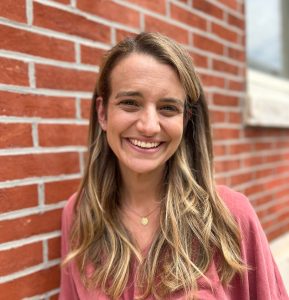A Live, Interactive Webconference
Friday, 5/12/23, All Training Groups via Live Interactive Zoom
8:25am-1:05pm
In families treated in intensive, in-home services, attachment ruptures (i.e. breakages of trust) between youth and their caregivers are a major component of the clinical picture. As in ESFT, the central premise of Attachment Based Family Therapy (ABFT), is to revive an attachment-promoting family environment and to improve a young persons’ sense of felt security in their relationship with their caregiver(s) so that caregivers can serve as a source of support to help young people cope with the emotional challenges they are facing. ABFT is an evidence-based model designed for treating youth with depression and suicidal thoughts and behaviors. Understanding that multi-stressed families traditionally terminate treatment early, ABFT intentionally focuses on engaging both the caregivers and the youth to buffer against premature termination. In this model, therapists meet with teens and caregivers separately, as well together in joint family sessions. This workshop describes strategies used in the subsystem work of AFBT that can be effectively applied to the families treated in intensive, in-home services.
This workshop will first review the theoretical and empirical support informing ABFT. Next, a brief overview of the five tasks will occur to give participants an understanding of the overall model. The five tasks of ABFT are 1) The Relational Reframe; 2) Adolescent Alliance; 3) Parent Alliance; 4) Repairing Attachment; and 5) Promoting Autonomy. This workshop will then focus on Task 2 and Task 3, with the goal of teaching participants strategies of how to maximize the use of subsystem work to inform joint family sessions. In ABFT, the subsystem work is crucial to prepare and motivate families to repair the parent-child relationships. The workshop will include lecture, small-group and large group discussions, video demonstration, and role-play to facilitate learning.
Objectives
As a result of attending this training, participants will be able to:
- Describe the basics of ABFT and how, like ESFT, it organizes therapy around interpersonal growth rather than behavioral management.
- Explain how subsystem work, as implemented in ABFT, informs joint family sessions.
- Discuss how therapists utilizing subsystem sessions can motivate youth to want to improve their relationships with their caregivers.
- Discuss how therapists utilizing subsystem sessions can motivate caregivers to want to be different with their youth.
This is an intermediate level course. The target audience is behavioral health professionals working within Pennsylvania’s Family Based program. This is a live synchronous distance learning activity conducted in real time, allowing for simultaneous participation of participants and instructors from different locations.
Agenda
8:25am-10:30am: Focus on Objectives 1 & 2
10:30am-10:40am: Break
10:40am-1:05pm: Focus on Objectives 3 & 4
 Allie King, PhD, is an assistant clinical professor in the Couple and Family Therapy Department at Drexel University. Dr. King is also the Training Director at the Attachment Based Family Therapy Training Program. Dr. King oversees the training and supervision of study therapists within the clinical trial research studies for ABFT. She leads trainings and supervision groups at the ABFT Training Program.
Allie King, PhD, is an assistant clinical professor in the Couple and Family Therapy Department at Drexel University. Dr. King is also the Training Director at the Attachment Based Family Therapy Training Program. Dr. King oversees the training and supervision of study therapists within the clinical trial research studies for ABFT. She leads trainings and supervision groups at the ABFT Training Program.
Dr. King received her PhD in Marriage and Family Therapy from Virginia Tech. Her research interests focus on adaptations of ABFT, person-of-the-therapist training, training of marriage and family therapists and adolescent eating disorders. She is an American Association for Marriage and Family Therapy (AAMFT) supervisor candidate.
Frequently Asked Questions
Visit our Policies & FAQs on Live, Interactive Webconferences for additional information regarding CFBT live interactive workshops, accommodations for disabilities, reporting problems with the training, instructions for registering for a training, etc.

